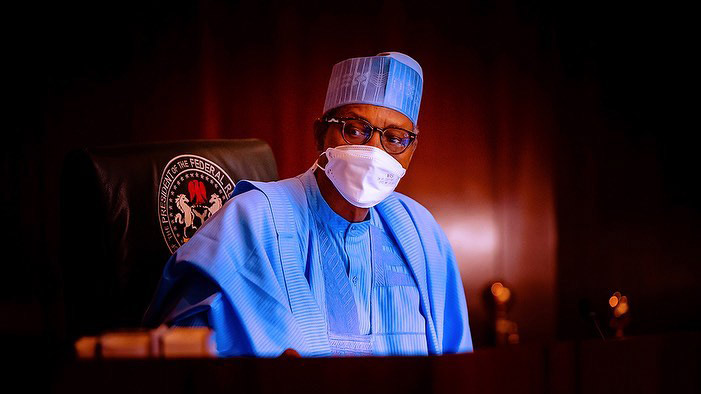
• Ongoing primaries valid under existing laws, not affected by amendments, lawyers say
A Coalition of Election Monitors and Observers (CEMO) has warned President Muhammadu Buhari against assenting to the recent Electoral Act 2022 amendment bill because preparations for the 2023 general elections are already in full gears.
The coalition, made up of 24 election monitoring groups, gave this warning, yesterday, after a meeting in Abuja, adding that signing the bill now will cause disruption in the processes of primaries already commenced by political parties under the provisions of the extant law.
The group noted that as desirable as the amendment is, signing the bill after most political parties had already started implementing critical aspects of the electoral process under the current law is “dangerous, counter-productive, capable of triggering widespread political crisis and litigations that can derail the 2023 general elections.”
According to the National Convener of CEMO, Dr Idris Yabu, who presented the report of the election monitors to the media, the President must save the nation from needless political crisis by returning the Amendment Bill to the National Assembly for reprocessing for future elections.
The guidelines of the Independent National Electoral Commission (INEC) require that parties submit the list of their delegates seven days to the convention.
In the amendment, Section 84(8) provides for automatic or statutory delegates. The section seeks to include as delegates the president, vice president, National Assembly members, governors and their deputies and other statutory delegates.
The provision is a sharp contrast to the section in the Electoral Act 2022 signed by the President, which states: “By virtue of Section 84(8) of the Electoral Act 2022, delegates to vote at the indirect primaries and national convention of political parties to elect candidates for elections shall be those democratically elected for that purpose.”
The coalition observed that President Buhari ought to have signed the bill earlier to give political parties a uniform direction for the nomination of candidates for the 2023 general elections.
It noted that any amendment to the existing law this time would amount to changing the rules in the middle of the game and disrupting the entire electoral process.
CEMO added: “After a very extensive review and consultations on the issue, we submit that the amendments sought to Section 84 of the Electoral Act 2022, as desirable as they may be, have been overtaken by events leading to the 2023 general elections.
“It is instructive to note that political parties, especially the two major political parties in Nigeria, have already started the electoral processes under the timelines, schedules and rules prescribed by the provisions of the extant Electoral Act 2022.
“More importantly, it must be noted that political parties have already structured their timetables, sold nomination forms, screened aspirants, conducted congresses, elected delegates, with major parties already holding primaries and candidates already emerging under the rules provided for in the current Electoral Act, 2022.
“Our observation shows that political parties, aspirants and the electorate have already adjusted to the current provision of Section 84 of the Electoral Act. Candidates are already peacefully emerging. Any alteration at this moment has the propensity of dislocating the current political tranquility in the country and disrupt the entire electoral process.”
IN his reaction, Dr. Mubarak Adekileku of the Department of Law, University of Ilorin, said the amendment would only become effective as soon as it is signed into law, adding that before such is signed, the existing delegates list who emerged through voting and whose names had been submitted to INEC are still valid.
However, he said INEC has, in accordance with its rule, maintained that such names must be submitted not less than seven days before the primaries.
“While it is evident that even if signed into law now, it cannot be used for the Senate, governorship and Assembly primaries, it is hoped that it may still be used for the presidential primary, that is, if it is signed today (Monday).
“And if the amendment is signed, the already conducted primaries are not vitiated simply because the statutory delegates list were not used. This is because a law does not have a retrospective effect. It becomes effective when signed,” he said.
An Abuja-based lawyer, Godwin Ogboji, said, “as it is now, the extant and existing law as provided by section 84 (8) of the Electoral Act recognises only elected delegates, hence all primaries to be conducted before the coming into existence of any subsequent law upon the assent of the President on the amended Electoral Act must be in accordance to the law that excludes statutory delegates.
“The law does not have retrospective effect except specifically provided for, so, even if the President signs the amended Electoral Act before him today or anytime soon, it will not have any effect on the already concluded primaries as they were conducted in accordance to the extant law as at the time of the primaries.”
A lawyer and convener of Vanguard for the Independence of the Judiciary, Douglas Ubankwa, said there is a confusion of purpose between the National Assembly and the Presidency as it concerns the protracted and complex amendments of the Electoral Act 2022, as it appears President Buhari is extracting a pound of flesh from the lawmakers who quickly added statutory delegates, but ignored a mutual agreement to delete a part of Section 84 he had raised a query about.
“However, it is the day and time the President signs the Electoral Act 2022 (As Amended ) that it comes into operation and not earlier. All party primaries conducted before then remain, having been conducted under the mandate of an existing law. There is no place for retroactive effects of our laws in our jurisprudential trajectory. This position of law has been affirmed in a plethora of judicial authorities.”



